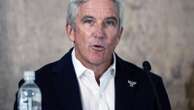With 2024 tracking to set a new global temperature record—surpassing the high reached just last year—and with an obvious uptick in human suffering due to war, social upheaval, political strife, and environmental degradation everywhere, the urgency for meaningful action is undeniable. Man’s negative impact on the planet is now unmistakable, driving home the need for swift and transformative change. And with recent election results in the United States alongside less progressive regime shifts happening around the world, we are at a critical juncture.
But none of this is news. Climate change and social inequality have both been trending for a while.
What gives me hope is design. The power of design is truly not to be underrated. Design is everywhere, in everything. And designers themselves are perfectly positioned to implement responsible design practices and evangelize circular economy principles. In my role at iF Design, I spend considerable time reflecting on what defines great design. It is increasingly clear that great design—from the past, for today, and in the future—is sustainable.Sustainability in this view is not just about the environment. It’s about reimagining a better future for us all. It’s about improving health outcomes and general well-being, promoting economic growth, and enhancing the quality of life across this planet. Too often in the design industry and certainly in business, sustainability is viewed as a constraint, something that stands in the way of aesthetic beauty or functionality or profit margins, when in reality, it can be a profound catalyst for innovation. The most impactful designs I’ve seen over the years have risen to the challenge of meeting both human need and an environmental imperative.
From the past to the present: Examples of sustainable design
iF Design’s connection to social impact dates back to the organization’s inception following World War II. Wilhelm Wagenfeld, a Bauhaus legend and trailblazer in industrial design, played a pivotal role in establishing iF Design back then. Throughout his career, Wagenfeld linked the design of everyday objects with social responsibility. His design philosophy, which emphasized products’ usability and their benefit to people across all levels of society, continues to resonate today and remains a core principle of the iF DESIGN AWARD.Fast forward to the present; since 2010, we’ve seen an increasing number of corporate sustainability reports submitted to the iF DESIGN AWARD by major global companies under the communications discipline. This shift highlights the growing responsibility of businesses to track environmental, social, and governance metrics in service of people, planet, and shareholders. Beyond these reports, other winners in recent years have exemplified innovative use of recycled materials, development of energy-efficient digital solutions, and adoption of circular design principles. Circular design—designing from inception for reuse, repair, and recyclability—is particularly exciting as technical know-how, practical support systems, and human willingness continue to expand.
The iF DESIGN AWARD provides an important case study for the macro trends shaping design. The annual iF Design Trend Report identifies key shifts such as those mentioned above. In 2024’s report, there are three trends that I find particularly relevant to the impact discussion in design: eco transition, human digitality, and glocalisation.
Eco transition reflects how designers must evolve to create products and solutions that embrace sustainable materials, regenerative ecosystems, and circularity. Human digitality describes the utilization of digital technologies not just for efficiency, but also for advancing social good. Glocalisation delineates the practice of sourcing materials locally, reducing dependency on global supply chains and minimizing transportation emissions. Glocalisation also ties into craft, community, and circularity.
Sustainable design as a mandate
We no longer live in a world where we can relegate sustainable design to its own category, treating it as a nice-to-have addition or separate consideration. Great design—whether it’s a product, packaging, platform, place, or policy—must be sustainably designed and made. This isn’t just my personal belief; it’s a reality that our industry must embrace whether or not the regulators, shareholders, end users, or business leaders agree.
With clearly recognized trends, we can specifically encourage and incentivize design to address and incorporate them as a powerful counterbalance and hopeful marker for the future.I think the global design community needs to know that the future of design is sustainable, and that future is now. It’s not enough to continuously raise the bar for what constitutes “excellent” design; we must redefine it entirely. I encourage designers, creators, business, and community leaders to see this as an opportunity, as an opening for new innovation; this is our moment to start thinking differently about how we apply emerging technology, leverage ancient craft, apply common sense, and bring education into the conversation so everyone benefits from the design decisions we make. Ask yourself and your teams how your design pushes boundaries—not just in form and function, but in creating a more sustainable, equitable world. Ask yourself as a consumer, what role do I want to play at this pivotal moment in the history of Planet Earth.
The power of design to propel our world forward has always been immense, today it is also a responsibility. At iF Design, we’re committed to recognizing and celebrating those who are leading with excellence AND impact. Together, we can create a world where sustainable design isn’t just an aspiration of greatness—it’s the standard.
Lisa Gralnek is global head of sustainability and impact for iF Design, as well as managing director of iF Design USA Inc. and creator/host of the podcast, FUTURE OF XYZ.








No comments